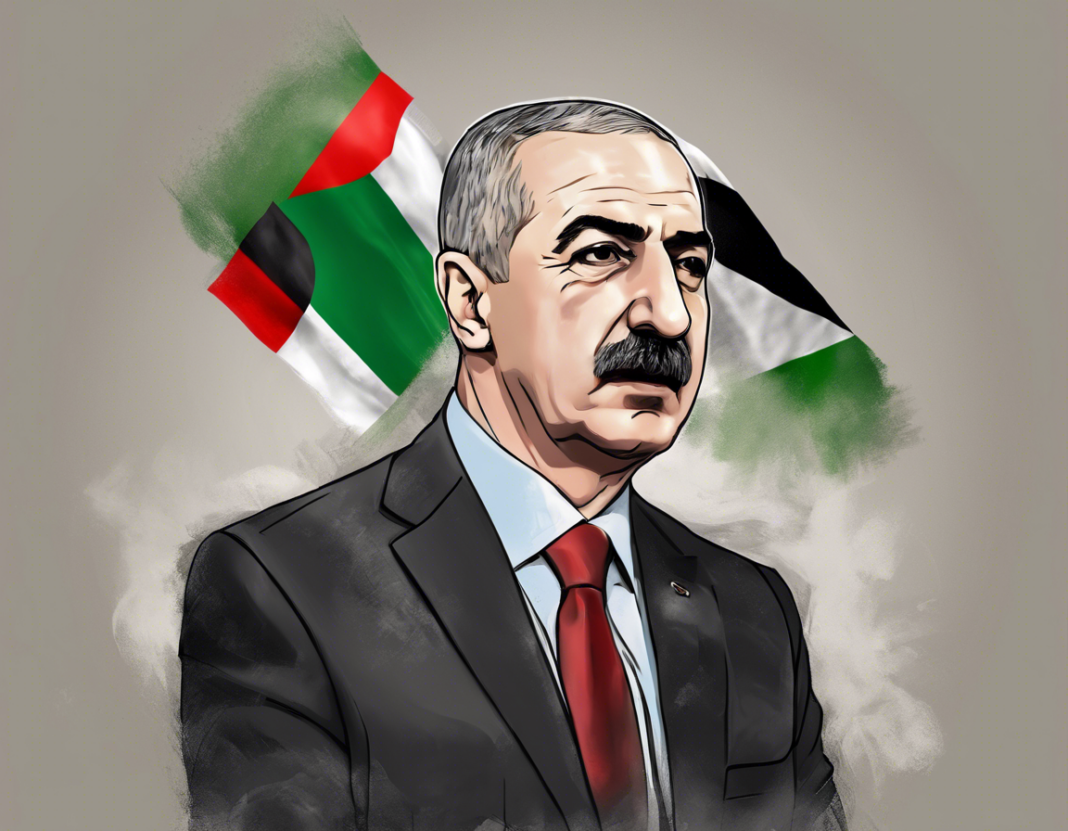Introduction
In the landscape of global politics, the Middle East has always been an arena of complexity and conflict, where leaders are tasked with managing intricate dynamics and solving long-standing issues. One such leader who has been making waves in recent times is Palestinian Prime Minister Mohammad Shtayyeh. His leadership and vision have been instrumental in navigating the challenges faced by the Palestinian territories and in striving towards a better future for its people. Let’s delve into the life and work of this prominent political figure.
Early Life and Education
Mohammad Shtayyeh was born in Nablus in 1958, amidst the turbulent political climate of the region. He received his education in Jordan and the United Kingdom, obtaining a Bachelor’s degree in Economics from the University of Jordan and a Ph.D. in Economic Development from the University of Sussex. His academic background laid the foundation for his deep understanding of economic issues, which would later become a cornerstone of his political agenda.
Political Career
Shtayyeh’s political career began in the early 1990s when he served as an economic advisor to the Palestinian negotiating team during the Oslo Accords. His expertise in economic development and public policy quickly gained recognition, leading to his appointment as the Director of the Palestinian Economic Council for Development and Reconstruction (PECDAR) in 1998. In this role, he spearheaded numerous projects aimed at rebuilding and developing Palestinian infrastructure in the aftermath of the Oslo Accords.
In 2005, Shtayyeh was appointed as Minister of Public Works and Housing, where he continued to advocate for sustainable development practices and infrastructure improvement. His commitment to economic growth and social welfare earned him the respect of his colleagues and the Palestinian people, paving the way for his future leadership roles.
Appointment as Prime Minister
In April 2019, Mohammad Shtayyeh was appointed as the Prime Minister of the Palestinian Authority, succeeding Rami Hamdallah. His tenure has been marked by a strong focus on political unity and institutional reform within the Palestinian territories. Shtayyeh has worked tirelessly to bridge the divide between political factions and to streamline government operations for greater efficiency.
One of the key initiatives introduced by Shtayyeh is the National Development Plan, a comprehensive strategy aimed at promoting economic growth, improving infrastructure, and enhancing social services for the people of Palestine. Through this plan, Shtayyeh has emphasized the importance of sustainable development and inclusive governance as guiding principles for the future of the Palestinian territories.
Challenges and Achievements
As Prime Minister, Mohammad Shtayyeh has faced numerous challenges, from political unrest to economic hardships exacerbated by the ongoing Israeli occupation. Despite these obstacles, he has remained steadfast in his commitment to peaceful coexistence and diplomatic solutions to the longstanding Israeli-Palestinian conflict. His efforts to strengthen Palestinian institutions and promote national unity have been widely recognized both regionally and internationally.
Shtayyeh’s tenure has also seen significant achievements in the realm of economic development and social welfare. Under his leadership, the Palestinian economy has shown signs of resilience and growth, with a focus on job creation and investment in critical sectors such as technology and renewable energy. His emphasis on education and healthcare has resulted in tangible improvements in the quality of life for Palestinian citizens.
Future Outlook
Looking ahead, Mohammad Shtayyeh’s leadership will continue to be crucial in shaping the future of the Palestinian territories. His vision for a peaceful and prosperous Palestine, based on democratic principles and human rights, remains a guiding force in his policymaking. As he navigates the complex geopolitical landscape of the region, Shtayyeh’s commitment to justice and dignity for the Palestinian people will undoubtedly be at the forefront of his agenda.
Conclusion
In conclusion, Mohammad Shtayyeh stands out as a respected leader and advocate for change in the Palestinian territories. His dedication to economic development, political unity, and social progress has earned him admiration both at home and abroad. As he continues to chart a course for the future, Shtayyeh’s leadership will be instrumental in shaping a brighter and more hopeful future for the Palestinian people.
Frequently Asked Questions (FAQs)
- What are Mohammad Shtayyeh’s key priorities as Prime Minister?
-
Mohammad Shtayyeh’s key priorities include promoting economic growth, improving infrastructure, enhancing social services, and fostering political unity within the Palestinian territories.
-
How has Shtayyeh approached the Israeli-Palestinian conflict during his tenure?
-
Shtayyeh has advocated for peaceful coexistence and diplomatic solutions to the conflict, emphasizing the importance of national unity and institutional reform.
-
What is the National Development Plan introduced by Shtayyeh?
-
The National Development Plan is a comprehensive strategy aimed at promoting economic growth, improving infrastructure, and enhancing social services for the people of Palestine.
-
What achievements has Shtayyeh’s leadership seen in economic development and social welfare?
-
Under Shtayyeh’s leadership, the Palestinian economy has shown signs of resilience and growth, with a focus on job creation, investment in critical sectors, and improvements in education and healthcare.
-
How does Shtayyeh balance the challenges of political unrest and economic hardships in the Palestinian territories?
- Shtayyeh remains committed to peaceful coexistence and diplomatic solutions, while also focusing on strengthening Palestinian institutions and promoting national unity to address economic challenges.

